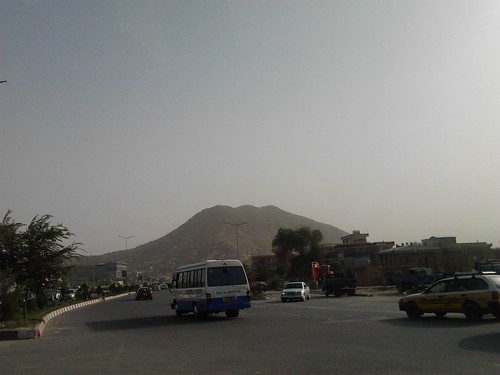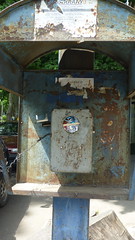Greetings from Kabul, dusty but determined capital of the country everyone has an opinion about: Afghanistan. For the second time in my life, I’ve arrived in Kabul. No longer confused or intimidated with how things look or work (or don’t work), being back in this magic town is like starting your second year of high school. You’re far from mature and wise, but you’re better prepared and strangely comfortable.

Over the next 16 days as part of the intrepid Small World News training team, we will be working as part of the international media development organization Internews. The mission is to teach, train, guide, and share knowledge with aspiring journalists, film makers, new media producers with all manner of interests and objectives. With our combined experiences, not to mention the unique experiences of these young people, we intend to better prepare them for the career that could lay ahead.
During the course of these trainings, I’ll be telling my own stories of what I see and what I hear, as always. But to be here in Afghanistan in 2011, one year after having been here for the elections of 2010, one prevalent feeling in the air (at least the air I breathe) is that at this point in global history, Afghanistan is no longer important. The international light that once shined on this place has grown dim, with those who wield it unwilling or unable to keep it on much longer. Whatever the typical time limit for attention and engagement this fickle and easily distracted world, it has been reached. Listen to a political speech or a news analysis and you’ll hear what to many are good arguments to stop engaging in helping this nation rise from the decade old ashes. Yet here we are, not just Small World News, but so many dedicated people, who still come despite the risks, obstacles, and the criticism; who still work hard for a specific purpose.. helping people build a strong nation with a good foundation. A foundation that took and will take substantial time and investment in various forms.
So it goes. Working in Afghanistan, for Afghanistan, long after it has gone out of style.
 The tall blonde blue-suited airport security worker keeps looking down at his screen and up at my face in suspicion, “So you work for who?” I try to explain my different jobs as a citizen journalist, but he only seems to listen to half of what I say. From the very first question he has shot me looks of disapproval, of my job, of my nationalities, of my travel habits… to him there is something wrong with me. He goes on to ask what I find to be excessively personal questions about who my friends are and who I live with, which I politely refuse to answer. He calls over another man who is near the gate, watching all the pre-boarding interviews for passengers on their way to the US. This man, obviously a supervisor, looks at me, looks at his paper, and starts writing me up for a “full” security check. As the two men start to take me away from the gate the supervisor says “Sir, you’ll have to go for further security checks, your life is just too complicated for us.”
The tall blonde blue-suited airport security worker keeps looking down at his screen and up at my face in suspicion, “So you work for who?” I try to explain my different jobs as a citizen journalist, but he only seems to listen to half of what I say. From the very first question he has shot me looks of disapproval, of my job, of my nationalities, of my travel habits… to him there is something wrong with me. He goes on to ask what I find to be excessively personal questions about who my friends are and who I live with, which I politely refuse to answer. He calls over another man who is near the gate, watching all the pre-boarding interviews for passengers on their way to the US. This man, obviously a supervisor, looks at me, looks at his paper, and starts writing me up for a “full” security check. As the two men start to take me away from the gate the supervisor says “Sir, you’ll have to go for further security checks, your life is just too complicated for us.”